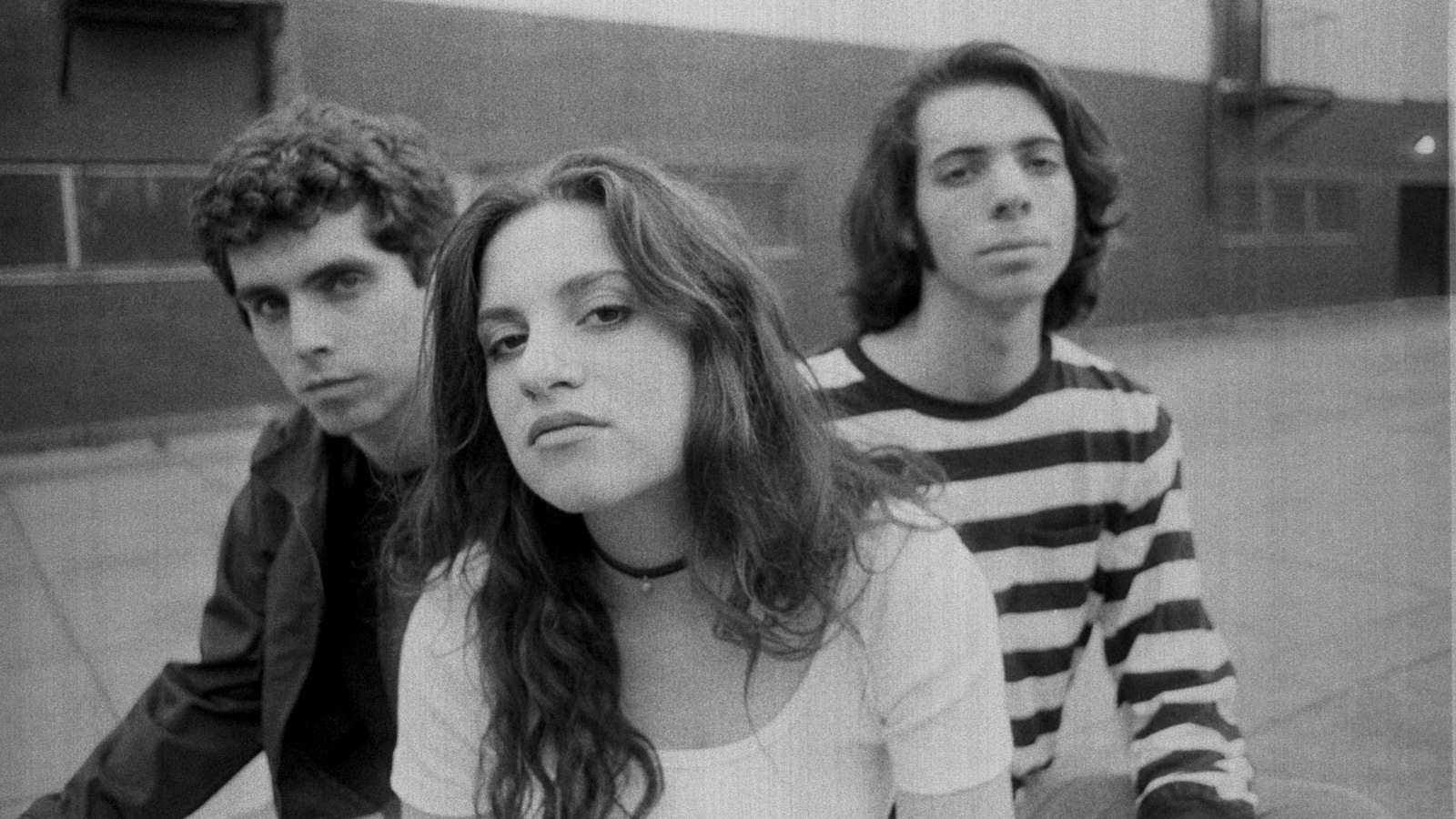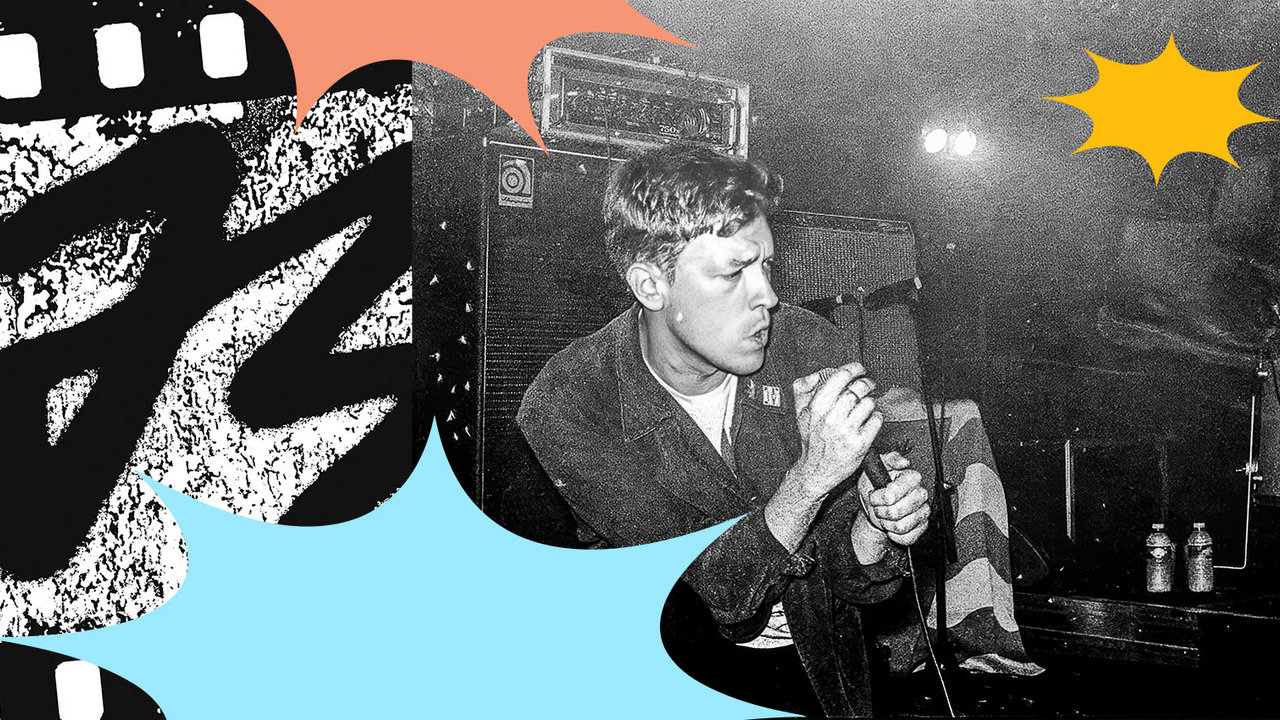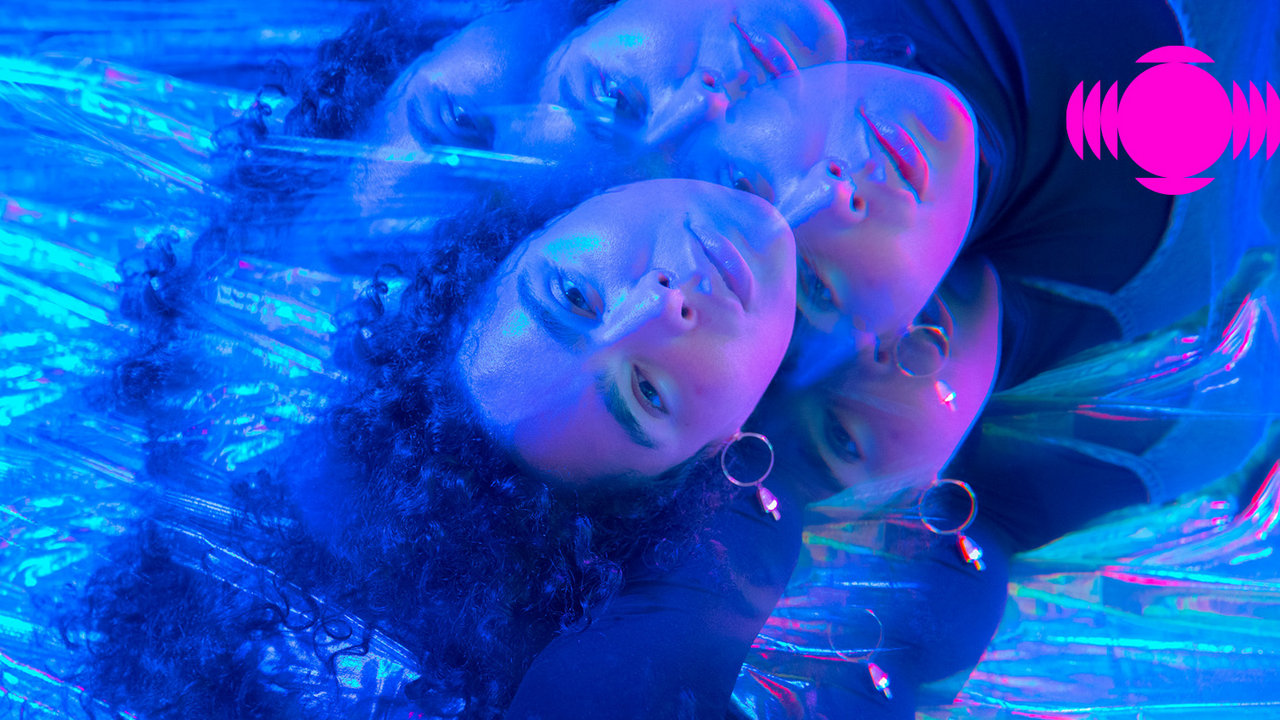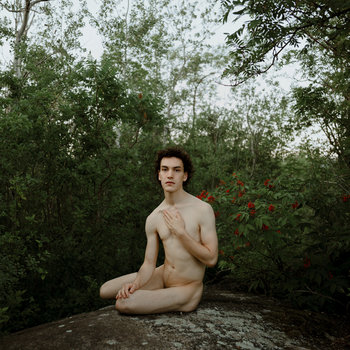
In the quaint and playful music video for “Sofa,” the closing track on their 1990 self-titled EP, the band Love Child can be seen frolicking amongst storied Jersey City landmarks, like Tube Bar and Miss America. Twizzlers are eaten, band members Rebecca Odes and Alan Licht wrestle each other to the ground, and there’s even an appearance from a giant teddy bear. The video’s grainy 8mm footage, coupled with the song’s repeated refrain of, “I wanna sit with you on the sofa” gives the song a childlike feel. It’s not pop-punk, but it is a combination of the two genres: punk in its raw, uncultivated performance style, and pop in the way that it taps into that eternal reservoir of youthful energy and emotion. Perhaps the song’s most striking element is the short bursts of noisy, free-improvised guitar that bookend its chorus.
At the time, many of Love Child’s NYC peers were playing with the same elements. When “Sofa” was shot, Sonic Youth were on the verge of bringing their brand of noise-tinged rock n’ roll to the mainstream with Goo. Beat Happening had become underground heroes thanks to their canny mixture of loose, simple songs and deliberate lyrical naivete. But Love Child were different from their peers in their ability to encompass all of these influences at once and incorporate them into something truly unique.







2 x Vinyl LP




Love Child began in 1986, when Licht met Will Baum toward the tail end of the former’s freshman year at Vassar. The two got closer over the course of the next year and made a plan to play music together. Shortly after, Odes met the pair through her boyfriend at the time, and the first configuration of Love Child was born. “I had actually started playing bass that summer in between freshman and sophomore year,” Odes said. “I got so sick of listening to my then-boyfriend talk about distortion pedals that I was like, ‘I have to figure out how to make this my own thing.’”
Armed with Baum’s 4-track, the trio assembled during spring break of 1987 to record demos in Licht’s parents’ basement in New Jersey. The scuzzy, lo-fi demo tape made some waves throughout the American indie rock scene: Calvin Johnson of Beat Happening played it on his radio show, and it scored a positive review in the celebrated ‘zine Forced Exposure, whose Byron Coley contacted the band to see if they wanted to play a show at the famed Middle East bar and restaurant in Cambridge, MA. Licht and Odes recall the show being packed with people, including a few underground rock legends scattered throughout the crowd. “The way we sort of entered into the music scene was sort of a big leap up from what we had been doing,” Odes remembers. “That first show, like, Kim Deal came to it. I think Tanya Donnelly was there too.” Licht agrees, adding “Evan Dando was there for sure.”

In February 1990, the band began recording their debut full-length Okay?. Like their demo, Okay? was recorded in a New Jersey garage, with the sessions engineered by Scott Hull. Despite this, the album turned out to be fairly polished sonically. “Sofa” reappears to open the album, while tunes like “Cigarette Ash,” “What It Breeds,” and “Will Power” display the band’s punky, noisy charm. Compared to many contemporaneous guitar rock albums, Okay? is flush with rambunctious personality and absurdly catchy songs. At a time when punk and indie rock bands were smoothing out their rough edges to better fit in with industry demands, Love Child deftly navigated the intersection of pop, punk, and the avant-garde. In the months leading up to the album’s release the band was making inroads in the scene, playing at legendary East Coast venues like CBGB’s and City Gardens in Trenton, sharing bills with bigger names like Galaxie 500 and The Feelies. When Okay? was released in 1991, it was met with mostly positive reviews; but Odes and Licht remember that some fans of the rough and tumble sound of the band’s demo didn’t take to Okay?’s cleaner, more robust sound. “I think people liked the 7-inch better,” Licht recalls. Odes agrees. “The 7-inch really made a huge impact,” she says, “and I think, the production on the album versions of the songs was a lot cleaner and that maybe made people mad.”





2 x Vinyl LP




Shortly after Okay? was recorded, Will Baum quit the band and was replaced by Brendan O’ Malley on drums. Licht would take over on guitar full time while sharing songwriting duties with Odes. This new lineup would enter the studio to record 1992’s Witchcraft, on which the band refined their sound and deepened the tripartite melding of pop, punk, and noise at the heart of their songs. The production on Witchcraft was lush and colorful, and the shouty, sing-songy quality of Odes’ vocals was replaced by a surer delivery that shows off her bright, crystal-clear timbre. Licht’s guitar playing is still explosive, even downright feral at points, but he also plays gorgeous melodic leads on songs like “Obsessive-Compulsive.” O’ Malley’s propulsive, punk-informed drumming became the engine that drove this new iteration of the band. Songs like the hypnotic, VU-esque droner “Stumbling Block” and the noise-punk epic “The Rose Is A Thorn” are thrilling documents of a band reaching the height of its powers—just as they were falling apart. Licht, Odes and O’ Malley decided to part ways not long after the album’s release. While many of their late ‘80s and early ‘90s peers have all been lovingly enshrined in the rock pantheon, Love Child remains criminally underrated. A new compilation of their best work, Never Meant To Be: 1988 – 1993, seeks to change that.
Pulling tunes from the group’s first 7-inch, their two full-lengths, a Peel session, and some previously unreleased radio sets, Never Meant To Be: 1988 – 1993 is a fine primer for a band whose sound encompassed so much in such a short lifespan. As an introduction to Love Child, the album brings out all the bangers including an electrifying version of “Asking For It” and “Willpower,” a fussy anthem and not-so-subtle diss of Baum that Odes now points to as an early expression of feminist spirit in her work. “That song was actually my sort of subterranean response to feeling like Will was bossing me around.” Odes recalls. “I love Will, and I’ve been really happy to reconnect with him, and I think it was just the dynamic of the band. But I also was really seeing it through the lens of the patriarchy. That sort of feminist energy has always kind of infused all of my work.”
As a snapshot of a long gone era, Never Meant To Be: 1988 – 1993 adds color and nuance to our picture of ‘80s and ‘90s indie rock revolution by reintroducing one of the era’s best bands. While much of the alt-rock movement may have been swept up into the major label gold rush, Never Meant to Be serves as a reminder that there was always another side. And Odes is feeling some of the positive reception. “People seem psyched.” she says. “It’s music that definitely had not been accessible at a time when a lot of other things from this era have been. I think people are excited to have it back in the conversation.”










